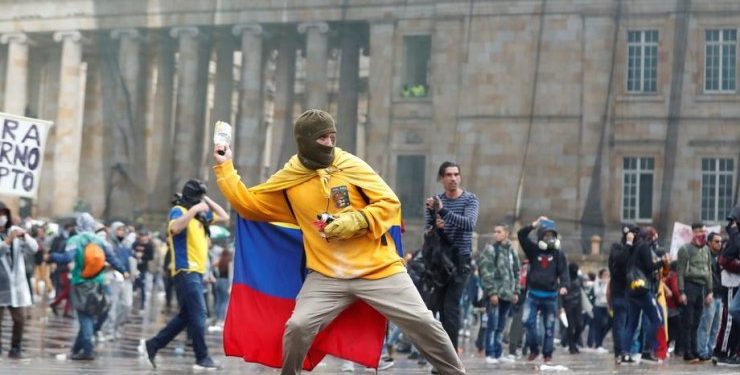CENTRAL NEWS
People’s support to the far-right Ivan Duque, who has been in power for 18 months, is gradually decreasing. Students, locals, environmental advocates and the opposition groups joined the strikes and marches that were called upon by labor unions, reacting to the fascist policies of the right-wing government.
“Colombia won on the day of this historic peoples’ movement,” the National Strike Committee, which brought together a large number of organizations, said in a written statement. The committee called the President for an emergency meeting and asked citizens to be ready for further action if the government ignores the demands.
President Duque said on Thursday evening that he heard the voice of the activists, yet, he failed to respond to the direct request for dialogue. The president stated, “the Colombians spoke today. We heard them. Social dialogue became the main flag of the government. We need to deepen this with all sectors of society.”
These actions in Colombia coincided with the social and political crisis in many countries of Latin America. The peoples’ uprisings first began in Ecuador, then spread to Chile and Bolivia. The unprecedented protests in Colombia on Thursday were generally non-conflict. More peaceful actions, pot-pan concerts drew attention.
According to the organizers, over a million people went out on the streets. The Interior Ministry claimed more than 200,000 were involved in the actions.




